Apartment Renovations Sydney
Apartment & Unit Renovations Sydney
Mr & Mrs Elias help people create outstanding apartment renovations in Sydney. We believe every apartment project reflects the personal style of the owner.
We simplify the process with our expert team of architects, designers and specialised apartment renovators. From your initial idea to handover to after build support, we’re with you every step of the way.
Specialising in architectural apartments and lobby upgrades, Mr & Mrs Elias tailor spaces for clients and ensure a world class experience.
Directors Jan and Georgina Elias have worked alongside the most reputable design firms, and have the unique skill set to understand design and functionality in the apartment space.
To understand the Mr & Mrs Elias process please visit our page; Process or view some of our latest projects here: Projects
Apartment renovations/unit renovations in Sydney comes with its own set of challenges.
Even though you may own the property, you don’t own the whole title as you would with a house – so you have to work with your Owners Corporation. This is why it is essential that you understand the strata approval requirements that apply in your building – as well as other factors like noise restrictions and the practical logistics of the project before any renovation work commences.
But do not fear – this is where we come in!
By working with you in the planning phase to help work out a detailed budget that takes everything into account. We then project manage your apartment renovation from start to finish and deliver your project on time and to the highest standard. You get to deal directly with us, which mean no sales reps or chasing tradies – we coordinate everything and make it happen.
All the tradies and contractors we use are also top shelf professionals, who have all the necessary qualifications and licenses to take on your apartment renovations goals!
Watch our short case study on Apartment Renovations with Mr & Mrs Elias
The Logistics of an Apartment Renovation
Renovating an apartment or unit brings its own set of challenges. Working with you we need to answer a range of practical questions before we get started, like:
- Where is all the apartment renovation waste going to go?
- What are the hours of operation in your building?
- Where can all the delivery trucks for the – tiles, kitchen cabinets, stone benchtops, appliances etc – going to park?
- Where do the contractors park when they are all working together on a busy day?
- What times are best to use the lifts?
- How does one protect the lift?
- What are the lifts internal dimensions?
- Is traffic control needed for deliveries?
- If mains water needs to be turned off, who needs to be notified?
Getting answers to these questions and more lets us build this information into your unit renovation project plan, and avoids delays and conflict.
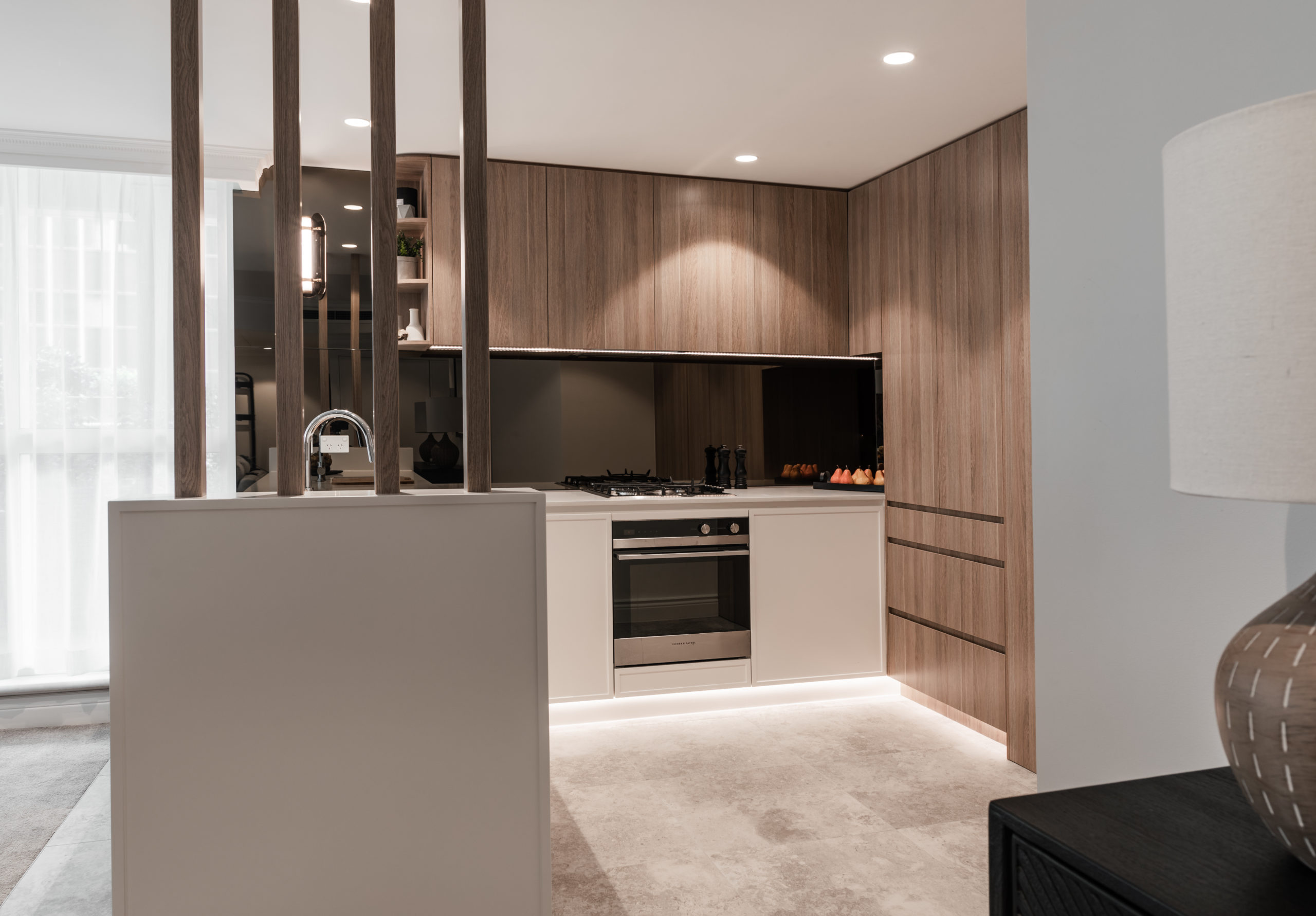
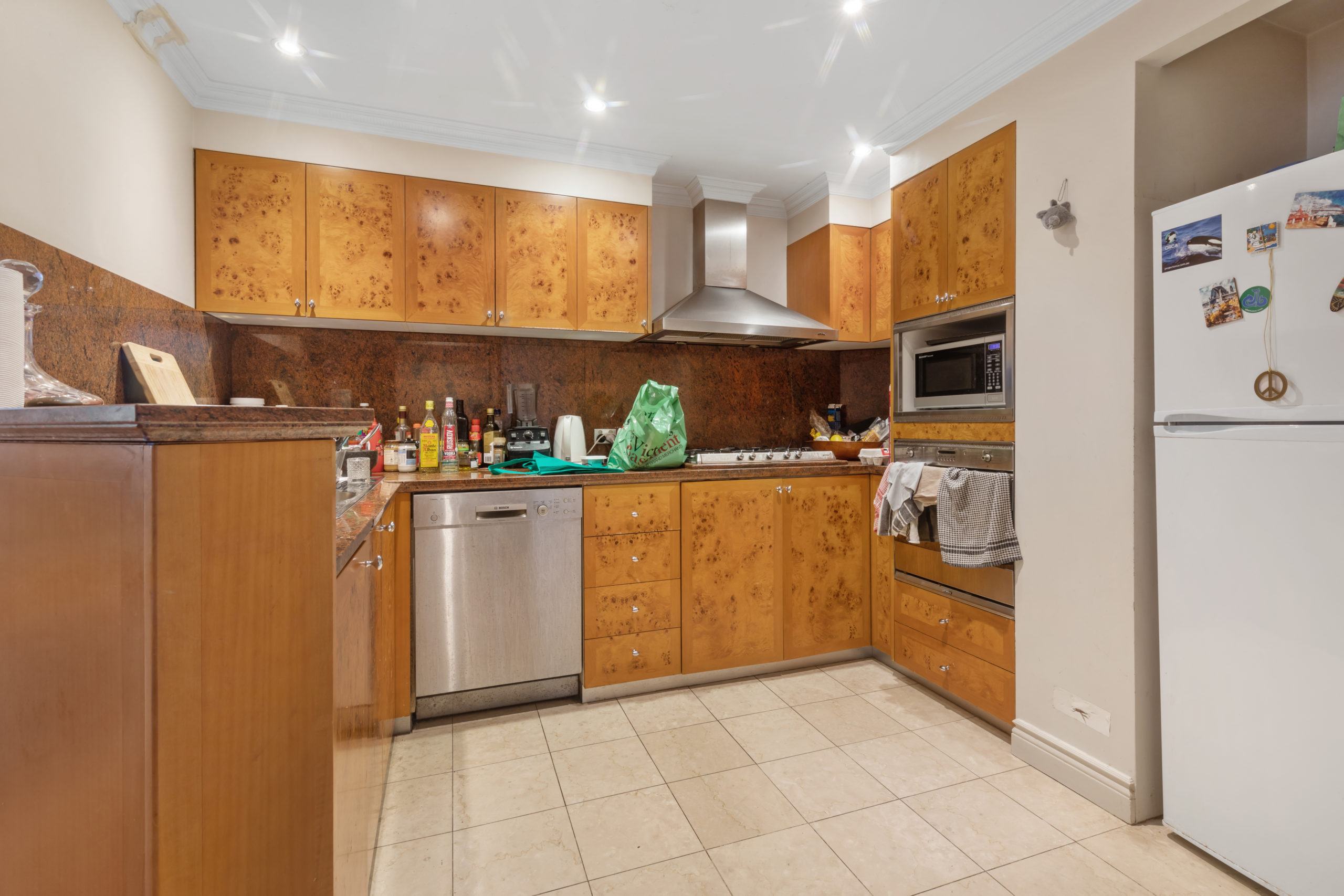
Understanding Strata By-Laws
Each strata scheme has its own by-laws, which all owners and occupiers are legally obliged to comply with. These cover a range of activities including how residents use common property, noise levels, if you can keep pets, what you can renovate with or without approvals etc.
By-laws often vary from scheme to scheme so it is important you understand what by-laws apply to your scheme – as they can impact your apartment renovation.
You will need to have a new by-law passed to cover your unit renovation if it changes the common property, such as when new waterproofing is required in the bathroom or wet areas.
The owners corporation must then decide by special resolution at an AGM or EGM to make or change a by-law. To have it pass, 75 per cent of lot owners must vote for your by-law.
To understand more about by-laws please visit our page; strata by-laws
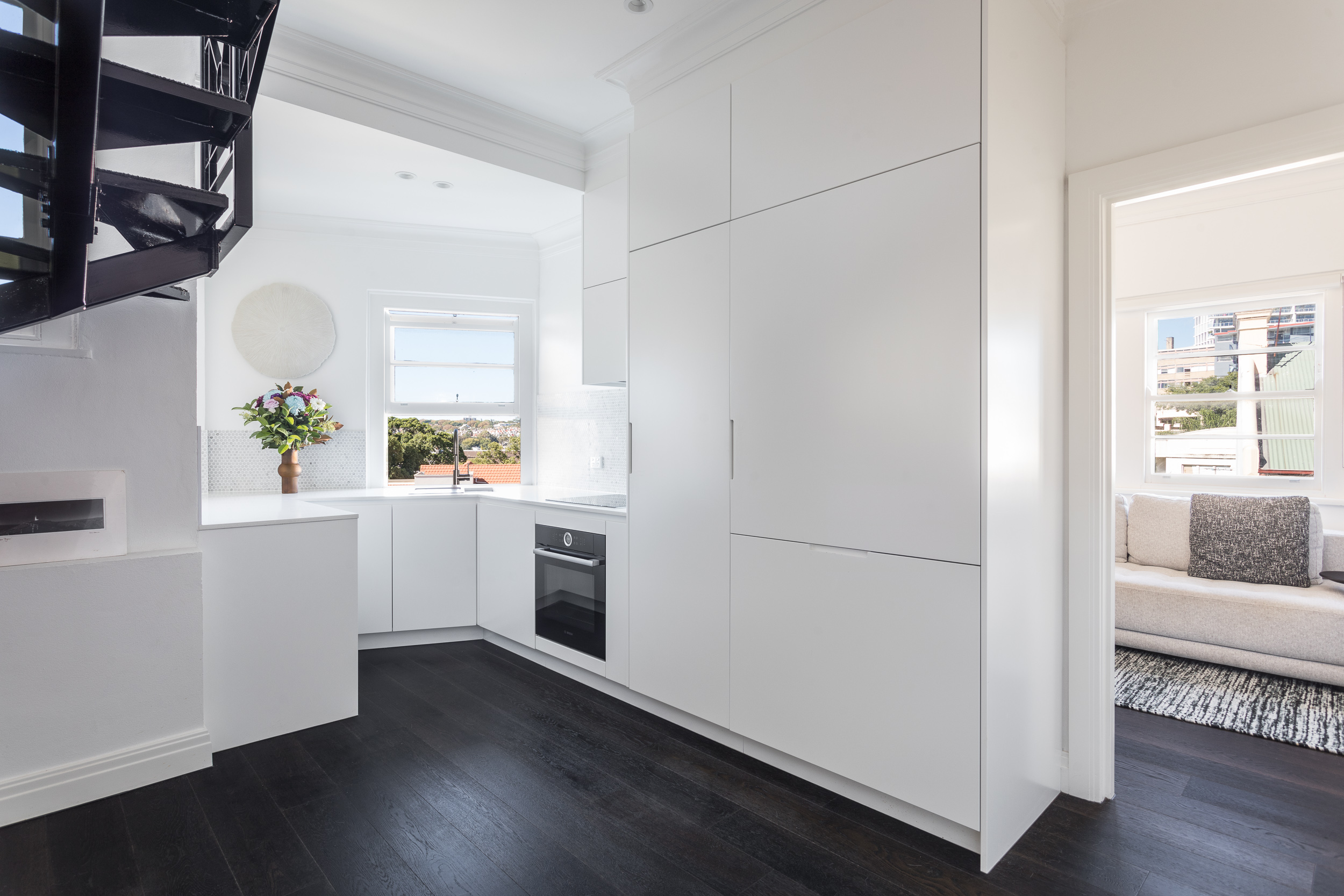

What About Noise Regulations in Apartment Renovations?
Renovating if often a noisy job, so when it comes to the works, try to be as considerate of your neighbours as possible. You want to give them plenty of warning – written and verbal – when the works are going to be happening.
This not only notifies them of any potential noise but can highlight when there may be tradies and contractors accessing your apartment via common areas like parking garages and corridors.
In Sydney there are also regulations covering noise from home renovations and or construction works, which may affect neighbours, this means there are restrictions for when power tools can be used.
We are generally allowed to work from 7 am to 8 pm during weekdays and to midday on a Saturday – though local by-laws will definitely differ and are stricter so for apartment renovations we generally work between 8am to 4:30pm.
As a courtesy to your neighbours, we take a community-focused approach to working on unit renovations and try to limit the impact our trades and works have.
When you get approval for works to commence we letter drop all the adjacent neighbours a courtesy community letter notifying them about the works, duration, approved hours of work, with our contact details for feedback or in the event of an emergency.
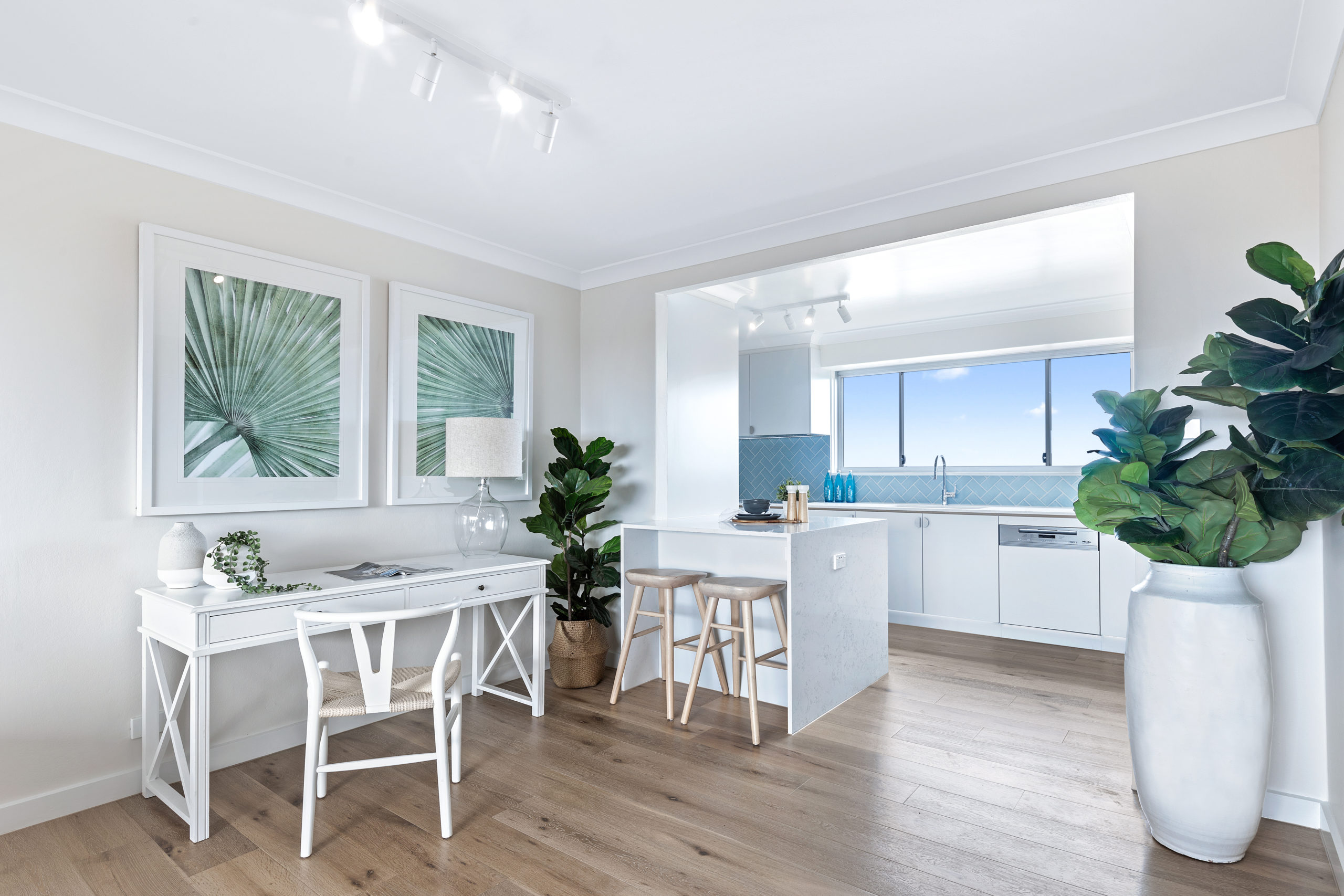
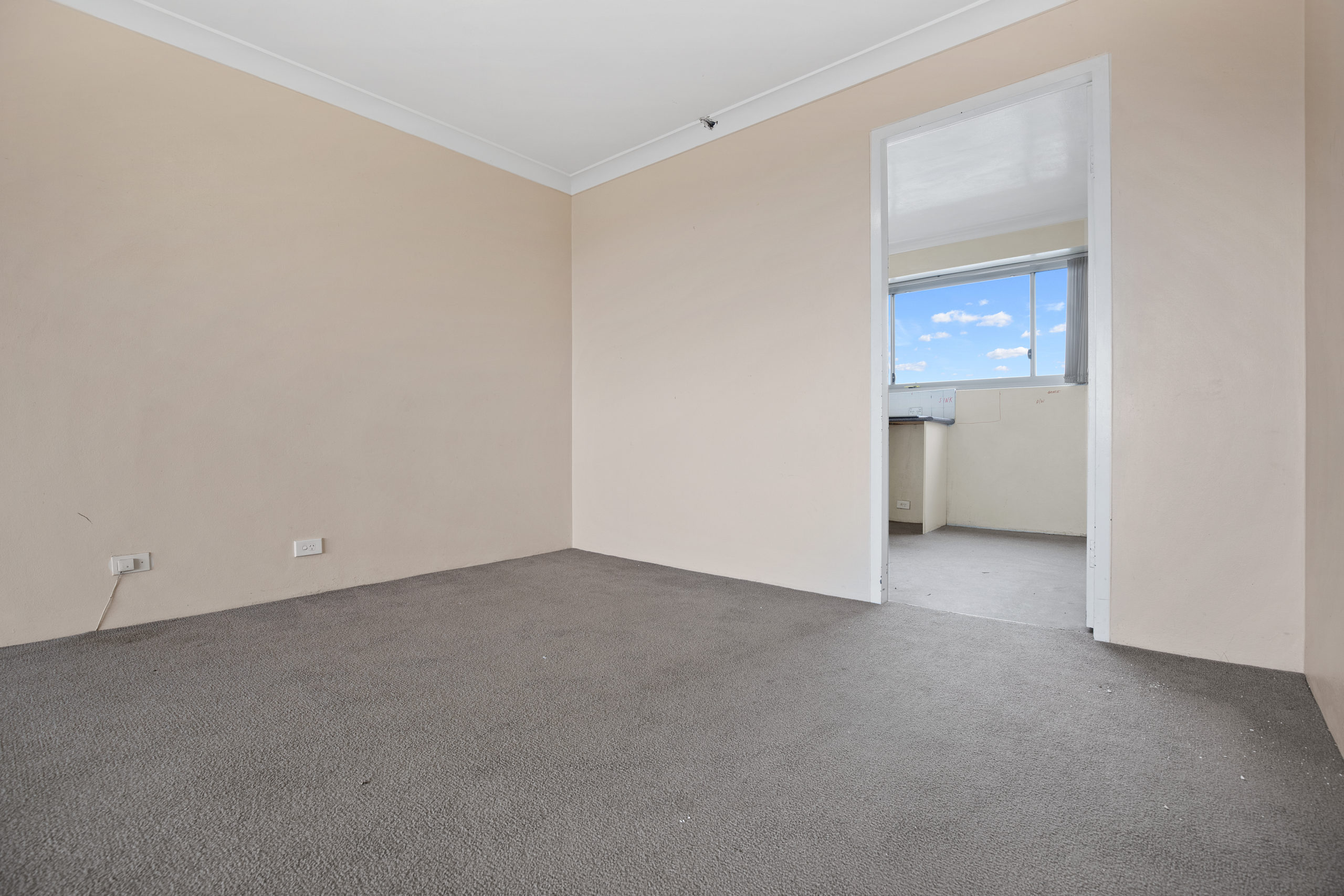
Lot Property vs Common Property Differences?
With apartment renovations, you need to get your head around what belongs to you (lot property) and what is property is managed by the Owners Corporation (common property).
Unlike a house, where you own everything on the stand, in an apartment or lot, common property is normally the main structure of the building, including the four main walls, ceiling, roof and the floor slab.
It is also all the external walls in the building, as well as areas like foyers, driveways and the gym or pool – places everyone uses and can access.
If you are wondering what actually belongs to you – an owner’s property is basically the airspace in the lot – which includes the internal walls, fixtures, carpet, and paint on the walls.
If you are planning to strip out and renovate your kitchen and bathroom you are very likely to require permission as you will be making changes or affecting the common property.
Structural Limitations of Apartment Renovations
Due to the nature of an apartment block, you are inherently limited by what sort of structural renovations you can take on. One example of this is relocating floor services – like plumbing and electrical or removing walls. These projects can be undertaken but require additional scope.
As an example, for relocating floor services, we will need to commission structural drawings and x-ray the floors to determine the location of steel and/or other services.
For removing any walls, our structural engineer will help us work all this out, and make your new floorplan a reality. We would need to produce some small penetrations at the junctions between your walls and ceiling and engage our engineer determine if the walls are structural/non-structural
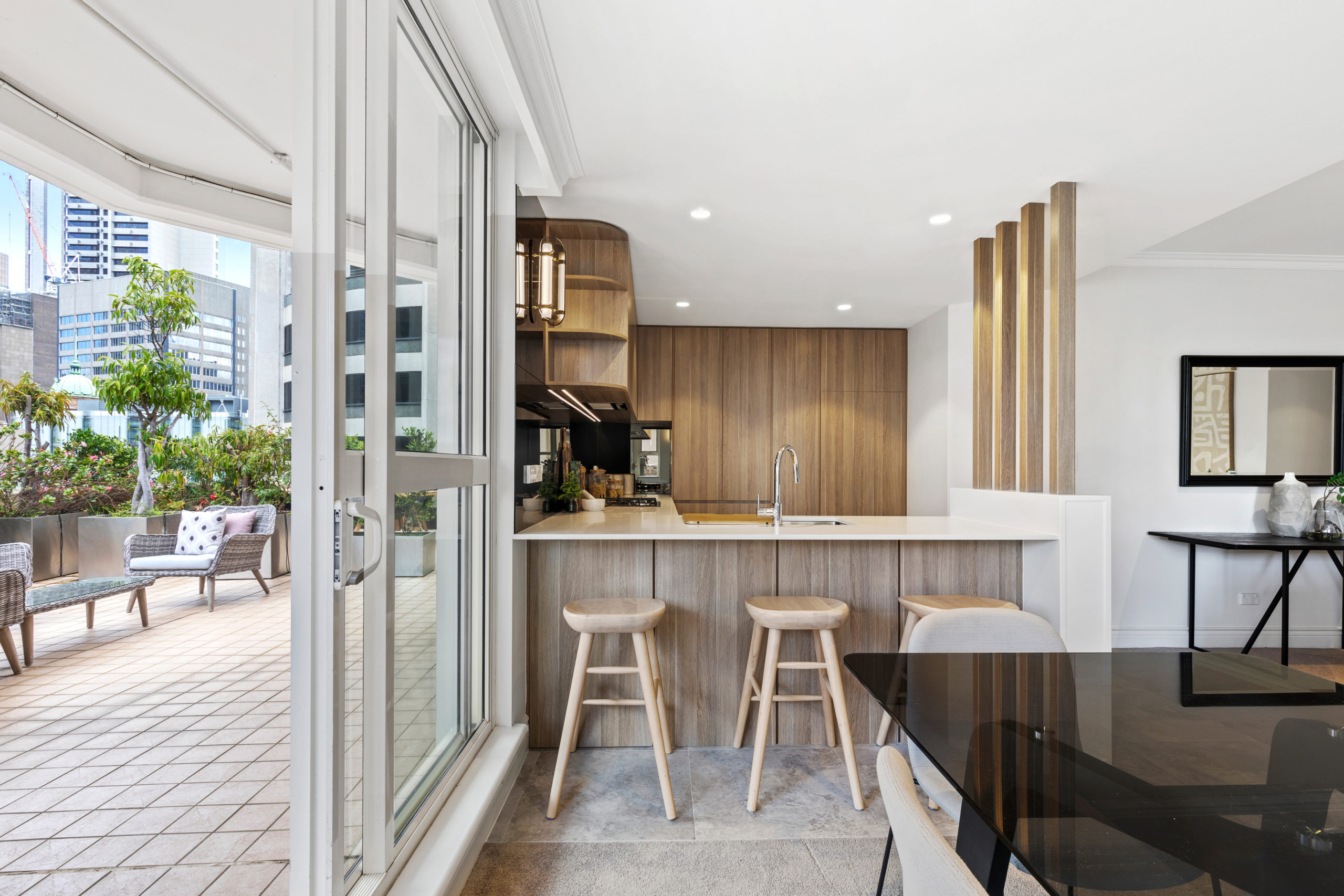
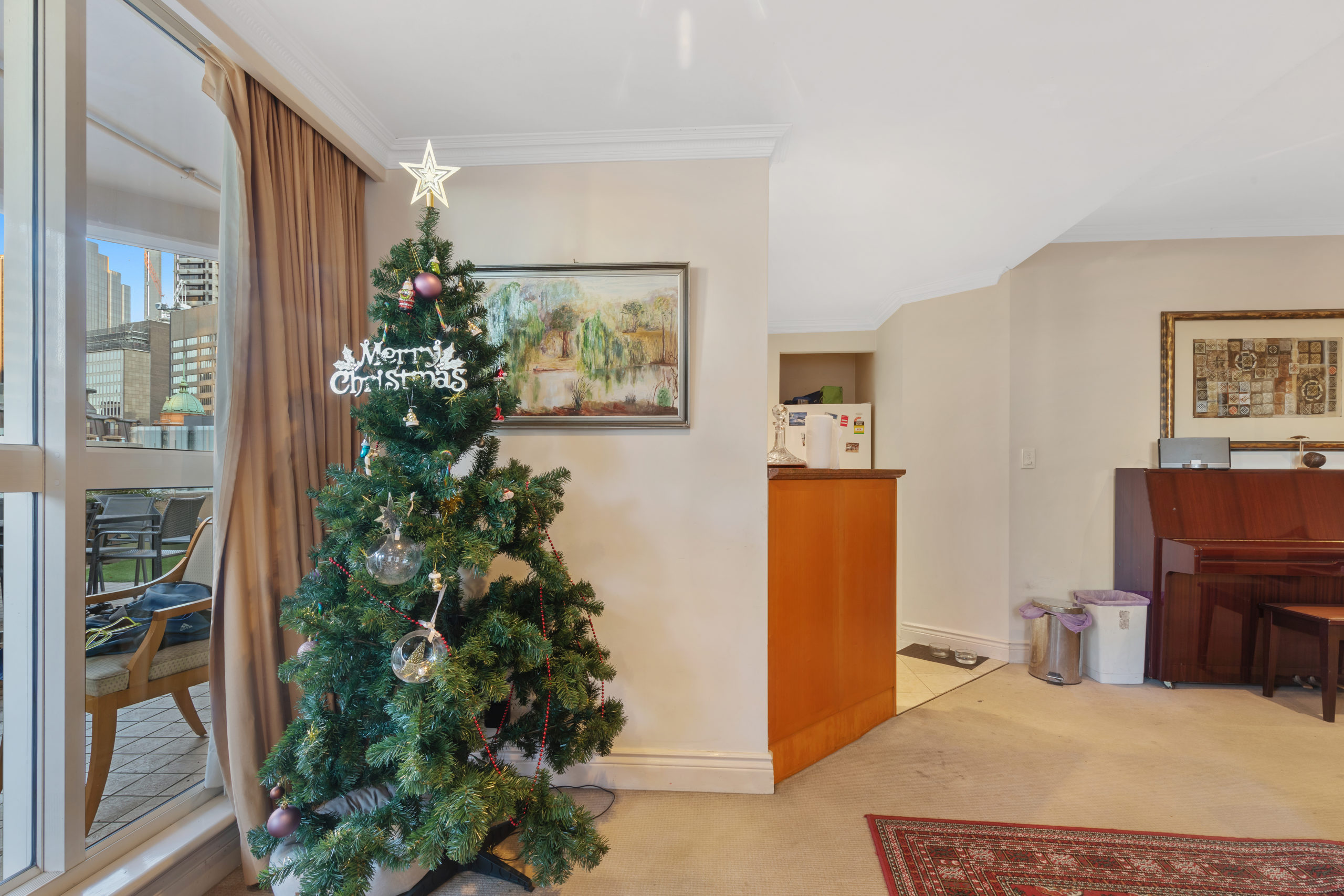
Understanding How Renovating in Strata Works
You need approval from the Owners Corporation of your strata title for most apartment renovations, no matter how small or cosmetic they seem to you. The Owners Corporation represent all the owners – including you – in an apartment complex, and are responsible for managing the building and approving renovations.
Start by getting a copy of the strata by-laws and looking into the approval process for your building. You can request the apartment renovation application form and review it with us to ensure you have everything covered.
The below points may seem overwhelming and all the wording may confuse you but don’t stress as it’s quite a standard process and if you keep reading on it will make more sense. Each strata company has slightly different rules and by-laws, but the procedure for getting approval looks something like this:
- Book in a phone consultation from us. Click here to get the process started.
- We will prepare a ballpark quotation for your review. If this falls within your budget, we will then book in an on-site consultation.
- At the on-site consultation we will revise the ballpark and take further measurements a explore more about your vision.
- We will then produce an updated quotation including a very detailed scope of works in a professional presentation with all our company details, accreditations, licenses & contract.
- Next you will sign the contract & pay the deposit.
- We will submit the strata application form, including the updated quotation (scope of works) to your Owners Corporation for processing and approval (Works are divided into cosmetic, minor and major works – and each has its own rules about which require approval)
- Your form is then reviewed by the Strata Committee who may require further information or clarification about your apartment renovation
- The Strata Committee will advise the method of approval required, which may include signing an indemnity form, paying a security deposit (in case anything goes wrong), and having a by-law drafted for your renovation (if it impacts common property) and/or the passing of a resolution at a Annual General Meeting (AGM)
- If there is no Annual General Meeting (AGM) scheduled you will be required to pay for an Extraordinary General Meeting (EGM) to be called, as Annual General Meetings only happen annually.
- Annual General Meeting (AGM) is where lot owners can ask questions about your project, and raise objections. This is also where they vote on your job
- An Extraordinary General Meeting (EGM) – is any meeting that is not an Annual General Meeting.
- Should a by-law for your apartment renovation be required you will need to get this drafted for submission at the AGM or an EGM that you call for. We prepare this for you, so don’t stress.
- Lot owners will then review it and vote on it as a special resolution.
- Your by-law then needs to be lodged by the owners corporation with the Registrar-General, who manages the Land Title System in NSW, before you can commence works
Once approval has been given – and this is something we have no control of – we can start on your apartment renovation.
To get a more detailed understanding, read our section on strata by-laws to learn more and how they apply to apartment renovations in a strata plan.
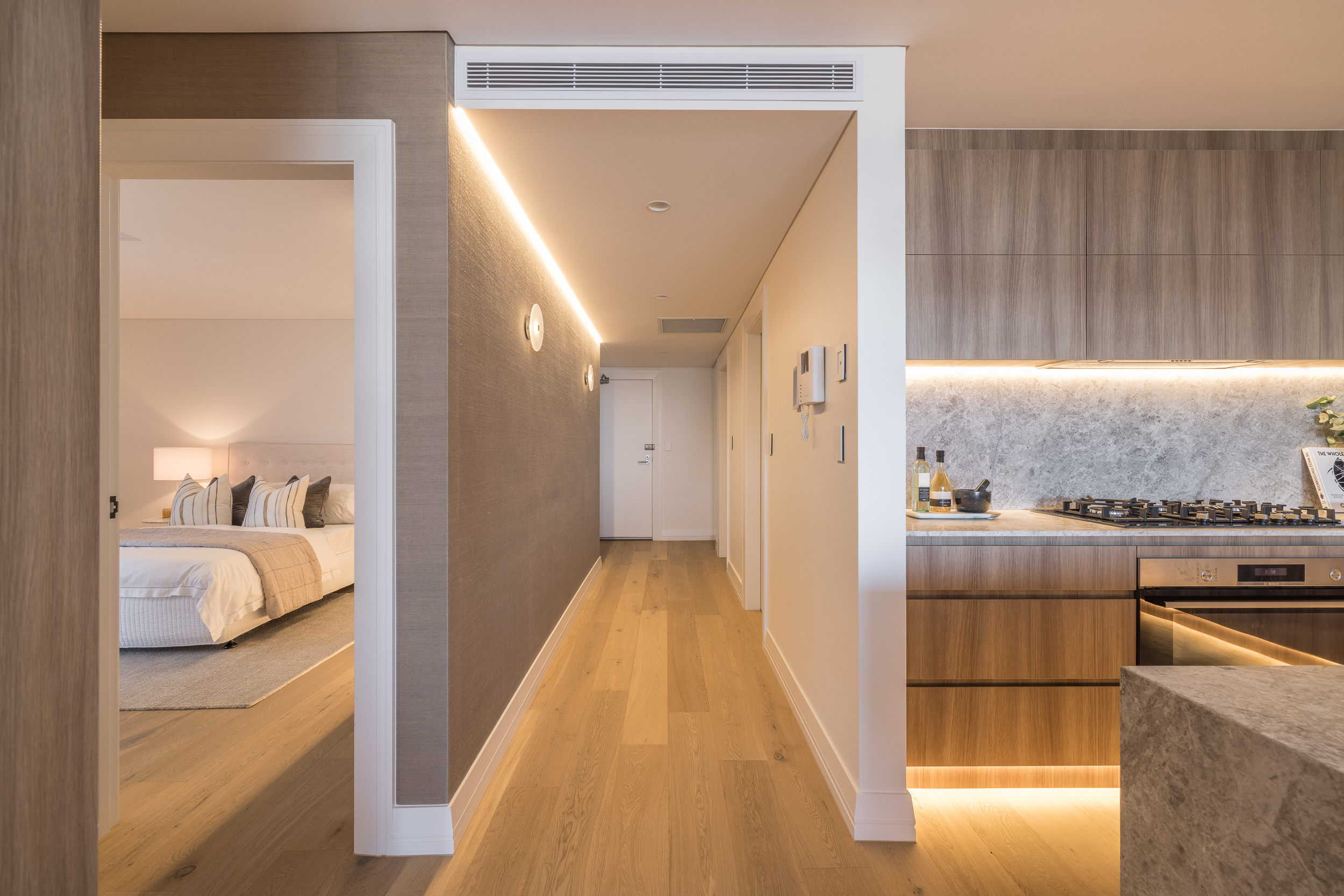
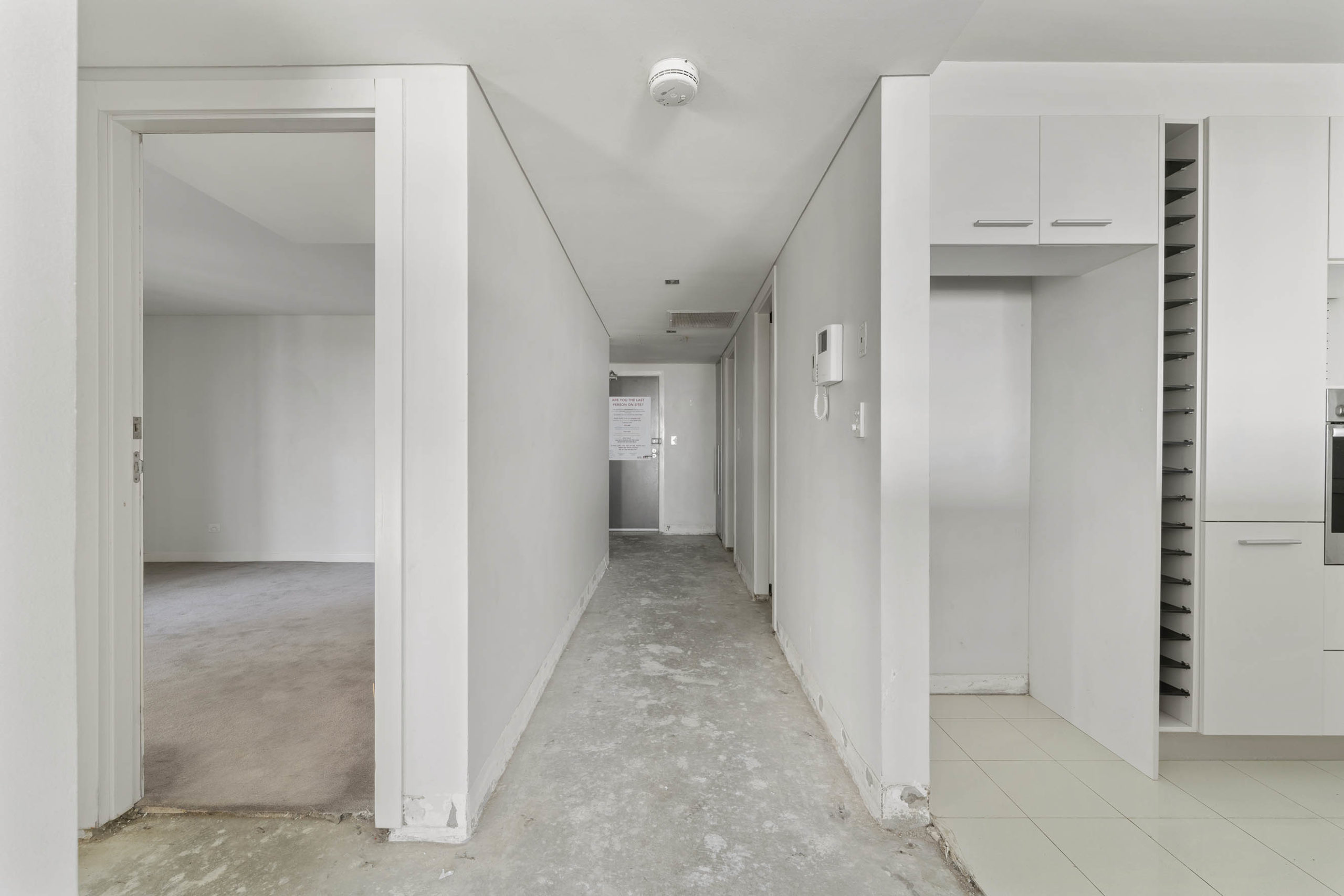
Can I Install Timber Floorboards in an Apartment?
A common question asked when we do apartment renovations is if you can install timber floorboards. Noise transfer from a hard floor surface can carry right through an apartment block – so we need to make sure this is done right.
Depending on the strata rules, one can usually install timber flooring with an appropriate acoustic underlay to meet the requirements. Some strata’s may require you to have an acoustic engineer do acoustic testing to ensure your hard flooring is compliant.
Watch our video on how we conduct acoustic testing for your timber floorboards!
Will I Need Approved Contractors for Strata Apartment Renovations
The Owners Corporation will also require you to provide details of the contractors working on your renovation.
Our Apartment Renovations Solution is a standardised PDF document which details all of our company licenses and insurances. This includes our NSW Contractor Licence: 239324C and NSW Company Licence: 286234C, as well as our public liability insurances and warranties. We submit this, together with the full scope our works to your Owners Corporation.
This makes it easy for them to view our credentials and approve your project asap!
Tips To Renovate Your Apartment’s Kitchen and Bathroom
Bring a fresh new sense of design to your kitchen and bathroom by renovating them together. Many of our clients opt to do a complete kitchen and bathroom renovation at the same time. This makes sense from a practical point of view as you:
- Minimise disruption to your life
- Make the most of all the tradies onsite for cost savings
- We can also help negotiate better prices from suppliers if you are shopping for both spaces
We project manage your kitchen and bathroom renovation from start to finish, and deliver your project on time and to budget. And you get to deal directly with us, which mean no sales reps or chasing tradies – we coordinate everything and make it happen.
Let’s take a quick look at what included in these areas;
1. Apartment Kitchen Renovations Sydney – Think Function, Design & Clever Storage
Popular refreshes to breathe new life into a unit’s kitchen include new:
- Cabinets
- Drawers
- Doors
- Benchtops
- Splashbacks
- Flooring
- Appliances
Our design team will help you work out what you want from this room and what features are on your must-have list. We also design your kitchen based on how you use it, and how it relates to the rest of your home. We factor in the function, the design, and clever storage solutions. Once that’s done we can start researching materials, specs, appliances, and fittings to get an understanding of what your budget will look like.
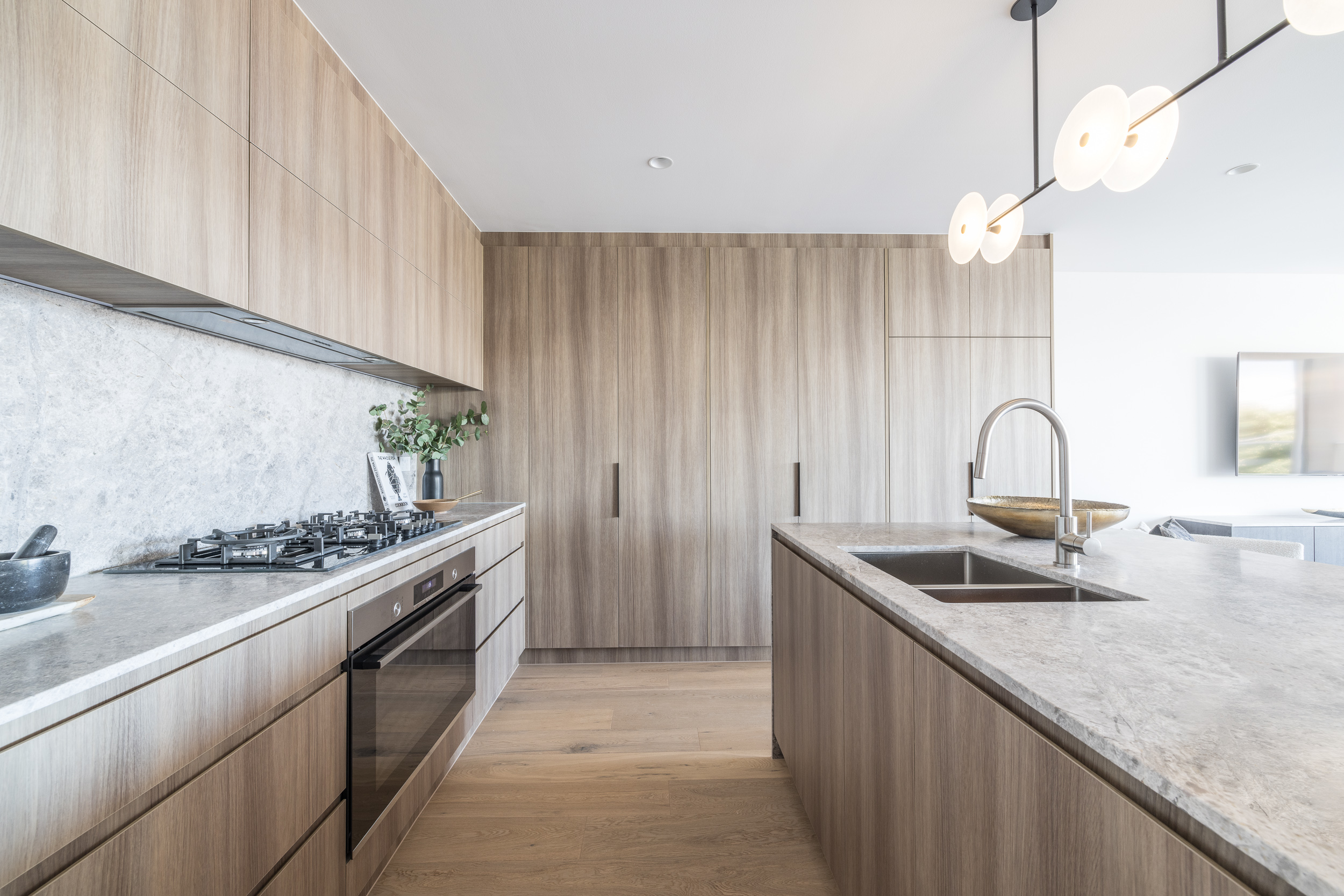
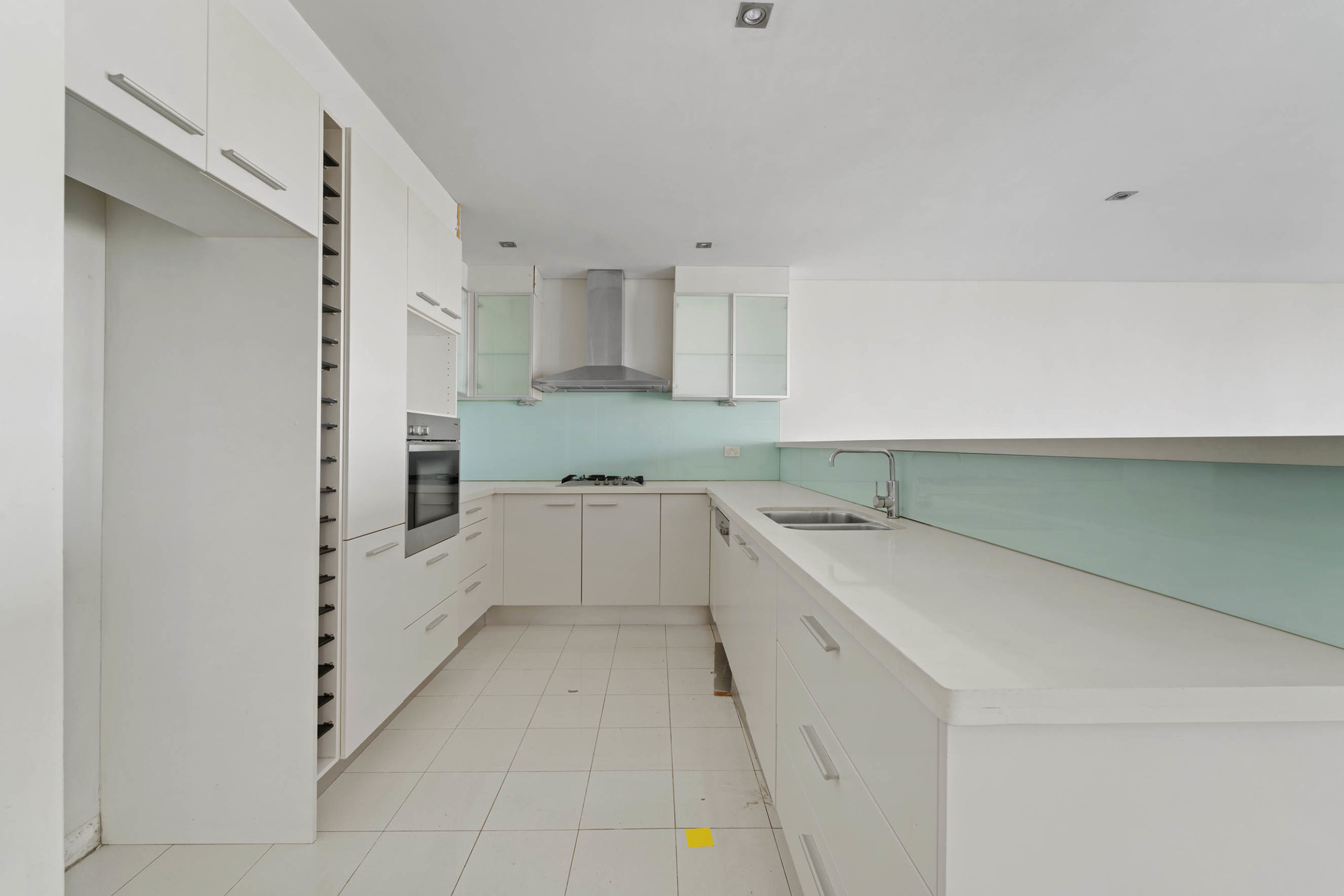
Let’s take a look at bathrooms;
2. Apartment Bathroom Renovations Sydney – Think Comfort, Easy Cleaning, Style
Popular refreshes to breathe new life into a unit’s bathroom include new:
- Tiles
- Showerscreens
- Bathtub
- Toilet
- Vanity
- Storage
- Flooring
A bathroom renovation is all about making this space practical and luxurious. We will help you select the bathroom fixtures and fittings so they are practical, coordinate with each other and look good.
Some apartments don’t even have laundries in their apartment, we are experts in integrating laundries with bathrooms while still keeping the right aesthetics. We do this by designing in sliding doors so when it’s not being used all doors are shut, the bathroom still looks luxurious.
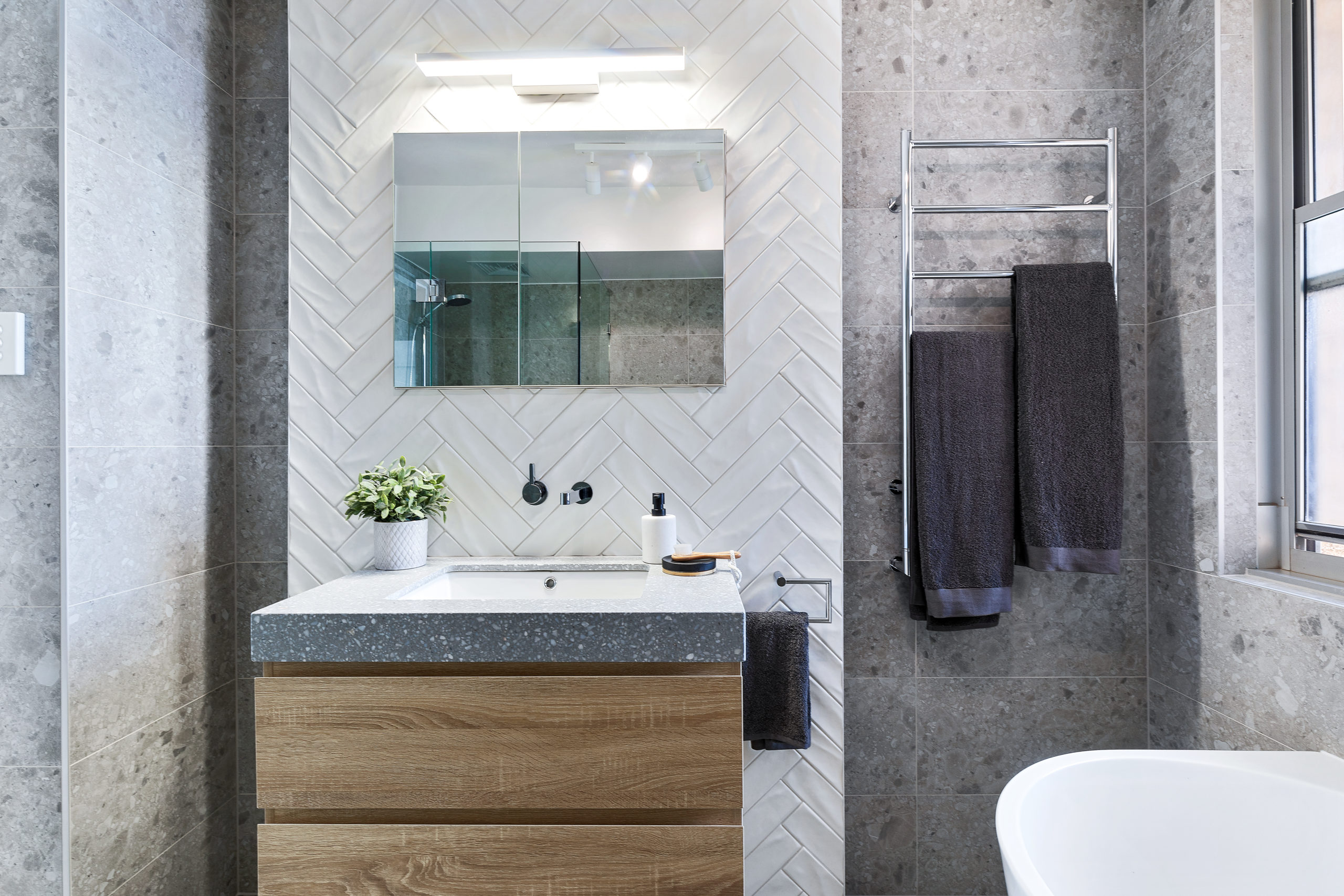
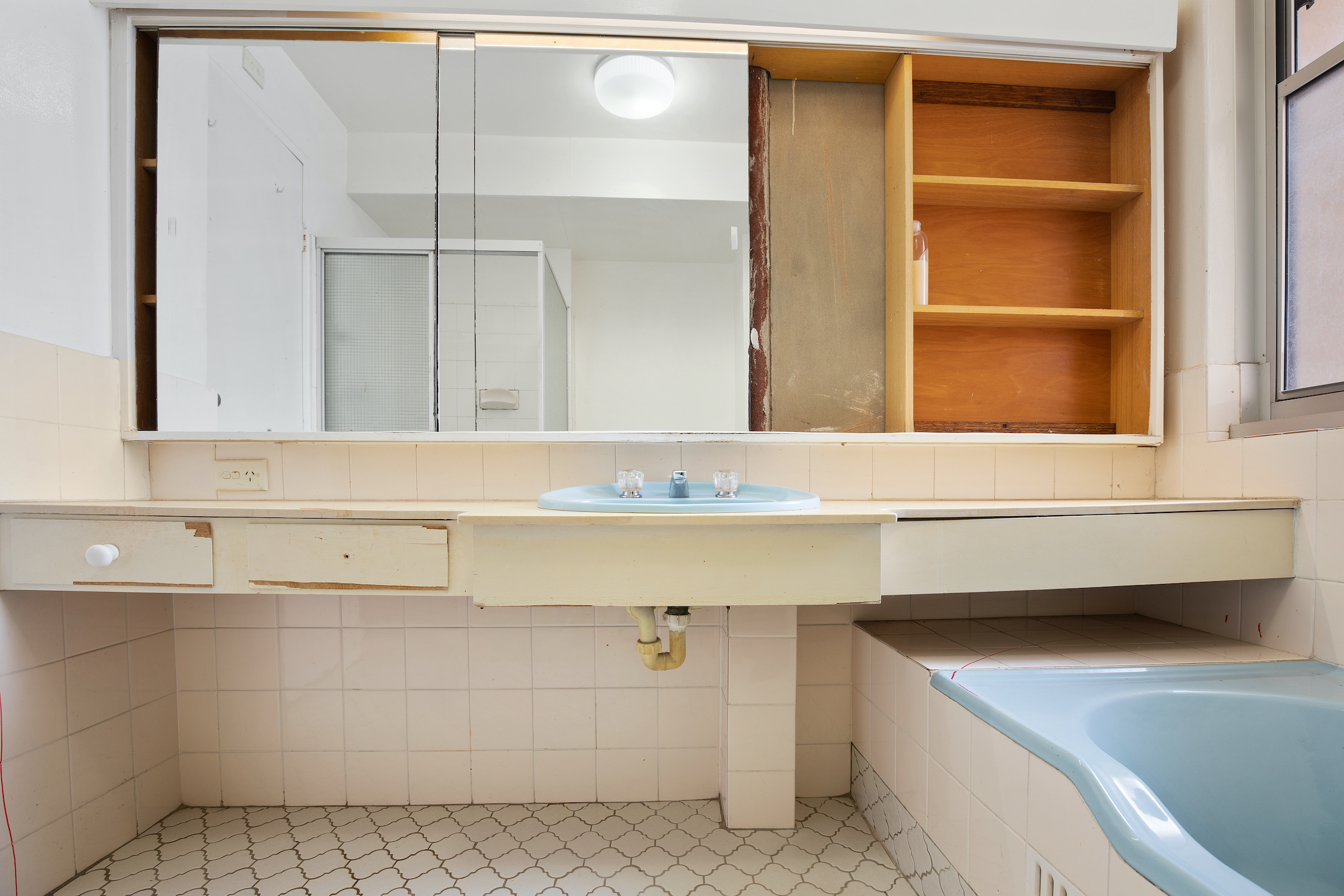
Working With Us – How Your Apartment Renovation Happens
It’s important you understand every step of the process so you know what to expect from day one. Here are the steps in our renovation journey together:
- Prepare Preliminaries: Before starting any sort of apartment renovation project, you need to confirm the following:
-
- Strata manager’s details
- Basic budget. You’re clear on your ballpark budget for the project and communicate this to ensure a tailored solution
-
- Phone Consultation: A member of our team will book in a phone consult to find out a bit more about your project such as:
-
- What is your vision?
- What is your style?
- What is your floor plan?
- Does your apartment require layout changes to the floor plan?
- Does your apartment require structural works?
- When would you like to commence the project?
- What’s your ballpark budget?
- Do you require interior design services?
- Duration of call: 30 minutes
-
- Ballpark Quotation: A member of our team will send you a ballpark quotation for your review and approval. This includes:
-
- Our company profile
- Strata approval process flow chart
- Scope of works
- Ballpark quotation
- Lead time for ballpark quote: 48 hours
-
- On-site consultation: We will book in an on-site consultation ($250 + GST) to discuss;
-
- Desired floor plans,
- Desired layouts
- Desired level of finish
- Desired timings
- Desired budget
- Discuss design and construct and construct options.
- It’s also a great chance for you to raise any questions you may have regarding the build or design and to get a feel for Mr & Mrs Elias as your designer and builder.
- Duration of meeting: 60 minutes
-
- Sign building contract: Our team will email you the final revised quotation and works E-contract (7 days after site visit) to sign and lock in a start date. After receiving this, we ask that you sign the E-contract so that we can begin work on your submission right away.
- Engineering plans (if required): A member of our team and structural engineer will attend site to assess the integrity of walls required for removal. Lead time for engineering plans: 1 week
- Strata submission: Our team will submit the following on your behalf;
-
- Strata application form
- Renovation scope of works quotation
- Basic design
- Insurances and licences
- Engineers report (if required)
- By-laws drafted by our solicitor (if required)
- Lead time for strata approval: 3-6 weeks
-
- Design & materials purchasing phase: Depending on if you choose if do a construction only or design and construct arrangement. Here we will use the time during the strata approval times to further detail project.
-
- Construction only (you guide the design)
- Week 1: Scope review and define-your-vision meeting (you will be given a document to complete before the meeting
- Week 2-4: Scope refinement period
- Week 5-6: Purchase materials
- Design and construction (we guide the design)
- Week 1: Scope review and define-your-vision meeting (with our interior designer)
- Week 2-4: Scope refinement period
- Week 5-6: Purchase materials
- Lead time for design and materials purchasing: 3-6 weeks
- Construction only (you guide the design)
-
- Approval and build: Once we receive strata approval, we should have the design relatively refined and materials ordered and we will commence the exciting part; the build!
Apartment Renovation Specialists
We are apartment renovations specialists and have worked on countless apartments and with many strata managers and Owners Corporations.
We will help you navigate all the regulations around strata, and make sure we have everything in place before any works begin. The key is to:
- Engage and communicate with your Owners Corporation from day one – so you know what is required and how the process works
- Present well-thought-out plans to help streamline the approval process
- Manage the works according to the by-laws
Why Work With Us?
The main thing we do is take the stress off your shoulders.
How?
By working with you in the planning phase to help work out a detailed budget that takes everything into account. We then project manage your apartment renovation from start to finish and deliver your project on time and to budget.
You get to deal directly with us, which mean no sales reps or chasing tradies – we coordinate everything and make it happen.
We are also fully licensed (NSW Contractor Licence: 239324C, NSW Company Licence: 286234C), and insured, and hold public liability insurance and all the necessary warranties to work on your job.
All the tradies and contractors we use are also top shelf professionals, who have all the necessary qualifications and licenses to take on your apartment renovations goals.
